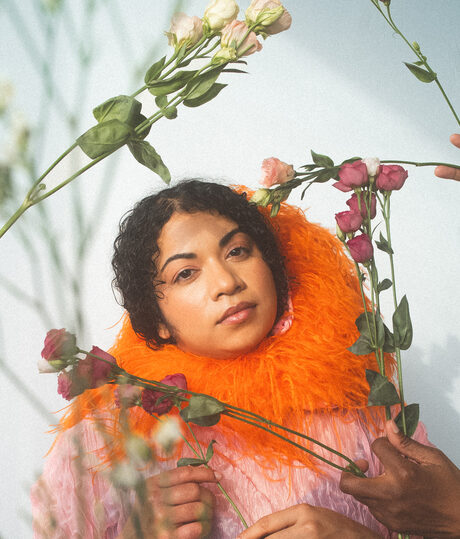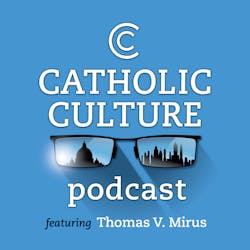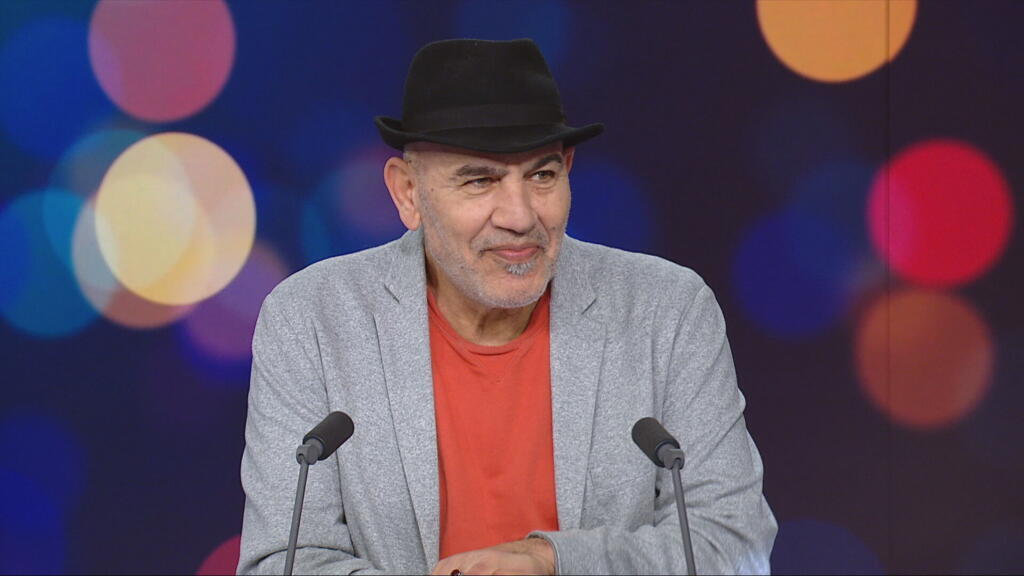Thanya Iyer is a Montreal-based singer-songwriter and violinist who was born to Indian mother and father and grew up taking classes in Indian music and dance. She went on to music and psychology at Montreal’s Vanier Faculty, and by the point she graduated in 2017, she had already launched her debut album, Do You Dream?, the yr prior. It’s an immersive collage of non secular jazz, experimental pop, and ambient people that grew extra fully-realized on 2020’s Polaris long-listed KIND, one which Iyer and her band proceed to hone in on their newest LP, TIDE/TIED. Although they launched an EP, relaxation, in 2022, the five-year hole between albums lends the brand new assortment a special form of gravity, and the group – together with co-producers Pompey and Daniel Gélinas – deftly bear the load. It’s a stirring, swirling antidote to numbness, however it’s also the uncommon form of therapeutic, jazz-inflected, spiritually-minded music that doesn’t skip to mantras a lot as circle the journey round them, paddling by uncertainty and ache. “What will we do after we can’t breathe?/ I overlook the way to be, the way to really feel like I’m free,” she sings on ‘Low Tides’. Driving with the sensation, with this group of individuals, brings her nearer to a future far past our quick line of imaginative and prescient.
We caught up with Thanya Iyer for the most recent version of our Artist Highlight collection to speak about therapeutic by music, the journey to TIDE/TIED, her collaborative course of, and extra.
There’s a line in ‘The place does that vitality go?’ that felt like start line, as a result of it’s about the way you used to journey mild and the way a lot you actually took away from the world. Do you thoughts talking to that previous?
It’s form of about waking up, on so many various ranges. Internally with our personal histories of trauma, after which outdoors on the earth to systemic forces of oppression. I’ve persistent ache in my hip, and that impacts my mobility. I’ve performed the whole lot bodily; final fall I used to be in a extra remedy path to it. And I believe once I was writing ‘The place Does That Power Go?, I used to be simply feeling that weight of that confusion, I used to be first beginning to discover that ache on a therapeutic stage, and the place this stuff come from. And I’ve realized that issues like immigration, colonialism, and racism reduce traces of households all through generations. Swiftly, we see a lot of mysterious ache or illness in a lot of BIPOC generations, so exploring that ache was about realizing that, like, perhaps it’s deeper than having some hip pressure. I’m attempting to really feel that narrative and settle for it, and in addition not let or not it’s so heavy. But it surely’s actually that inside and exterior weight that we begin to awaken to, simply beginning to discover.
When did your relationship with music turn out to be one thing therapeutic?
Via the whole lot, music was all the time this place to be current and heal and course of, and I really feel like it’s going to proceed to take that place in a manner that I hope is extra constant, virtually. I believe typically I overlook that once I’m within the thick of issues, and I wish to keep in mind how highly effective artwork is, and why it attracts us all collectively, why it’s so vital that it’s being made. Earlier than the discharge began, I had this sense of, “How fortunate are we”? I used to be speaking to Pompey and Daniel [Gélinas], my band, and I used to be like, “We’re so fortunate that we get to play exhibits and expertise that vitality in a room with folks.” Simply feeling that hopefulness and the ability of artwork.
Had been there intervals of doubt or disconnect for the reason that launch of your earlier album?
One hundred percent. Quite a lot of this album was written by me writing a tune day by day for 2 months. After which, I don’t know if it was simply not giving myself permission or feeling actually confused, however I stored pushing album launches and exhibits and excursions. And I used to be identical to, “I can’t push issues anymore.” After which I utilized for varsity, and I did the music remedy program. And no regrets in any respect – I’m so glad that I obtained to discover that a part of myself, as a result of I knew it was all the time one thing that I needed to do, and I didn’t anticipate it to occur so early. But it surely was such a rigorous program on prime of me attempting to do my music, after which train classes, after which all of those different neighborhood issues that I used to be doing. It was a lot and I felt like my private music follow – me connecting to creativity not throughout the band or on the earth – fell apart a little bit bit. I solely just lately remembered that this album got here from me committing to that creativity day by day, and such particular, highly effective issues can come out from that work. Releasing the album has undoubtedly been useful in consolidating some issues for me.
Was there some extent the place you felt this assortment of songs shifting in a extra collaborative course?
It’s all the time been actually collaborative with the band. Often, I deliver a skeleton of a tune, and we form it collectively. After which, I suppose due to the pandemic, I had much more time to discover my imaginative and prescient of what the songs might be. I used to be simply in my room arranging, enjoying six violin and viola tracks over the songs, enjoying round with these preparations. So it was actually enjoyable to discover that different a part of myself and my pursuits, after which deliver these concepts to the band in a extra totally fledged imaginative and prescient. It’s like studying how we’re all the time rising and altering and attempting to regulate that into our very collaborative house.
Once we produced the album, Pompey and Daniel and I spent two weeks recording mattress tracks, after which one other twelve days on this condo simply having enjoyable with the songs – overdubbing, everybody on their very own laptop of their room engaged on issues, then coming again out and sharing concepts. It was very collaborative.
Is there a element or reminiscence that stands out to you in seeing the songs come to life that manner?
One factor I assumed was enjoyable, in ‘What can we develop that we will’t see from right here?’, there are these little issues that may occur. At one level, Pompey put a gate on my synth, and the gate was hooked up to Daniel’s drums, after which we took out the drums and simply thought, “Wow, the Prophet sounds so cool on this vibe.” There have been all types of little surprises after we have been on our computer systems engaged on the music. I are typically within the “extra is extra enjoyable” camp in the case of overdubs – put each thought on there – however that creates a whole lot of work after the very fact to do a whole lot of shaping. ‘Low Tides’ was a kind of songs the place we had a lot materials and actually needed to craft it. There have been a lot of small enjoyable issues.
On ‘Excessive Tides’, you sing, “I wish to write phrases which might be straightforward to learn.” Quite a lot of the lyrics strike me as having that directness, however the phrases aren’t essentially straightforward to sing. There’s a nuanced magnificence not simply to your voice, however the way you combine and produce different voices into the songs. How has your relationship to your voice developed through the years?
I began off enjoying piano and classical violin. I did South Indian classical singing once I was youthful, however not in a proper manner, or not on this type of music. I solely began taking vocal classes in direction of the tip of taking classes. I discover my voice has modified a lot. If I take heed to our first album, it’s simply so completely different listening to my voice. I actually really feel this: The extra you sing, the extra that muscle builds. This was additionally the primary album the place we spent a lot time within the studio actually crafting the vocal tracks. For my final EP, it was like, “Okay, nice,” and we recorded it fairly quick in a day. However right here, we spent many days on it, and I really feel prefer it grew to become simpler to sing the whole lot. I realized quite a bit in regards to the prep it takes to point out up vocally within the studio.
Certainly one of my favourite moments on the album is on ‘Wash all of it away’, when this prayer leads the music to recede and circulation outward. How do you are feeling in that wave of quiet?
As somebody who likes to play quite a bit and have a lot of issues happening – as I’m positive you seen within the album – the wave of quiet, even after we carry out it, seems like a breath to stick with. After I really feel on stage that I can take so long as I would like in that house, and don’t should rush to seek out one thing, it offers me a lot vitality and confidence. There’s a whole lot of energy in these areas of silence, whether or not stay or in that place – only a second to breathe.
What else helps you keep grounded when performing or making songs?
I’m nonetheless studying what helps me. Slowing down is unquestionably one, but in addition not pushing by and acknowledging that if I’m feeling strain within the songwriting course of, it often means one thing isn’t being taken care of, so perhaps I would like to modify what I’m doing or attempt one thing else. Even at a present, if one thing isn’t working – as a result of we improvise quite a bit on stage and preparations are inclined to take completely different shapes – it’s good to attempt one thing new. That may deliver pleasure to me and shift no matter association there’s within the band as properly. I actually like when it occurs within the band organically – after we play collectively quite a bit on tour, we begin to learn the vibe, and magical issues can occur if you let issues go.
The ultimate monitor, ‘Waves/Maintain/Tied’, is of course break up into three components. The primary half seems like probably the most susceptible second on the album, prefer it may have been the opener, however you reframe it by tying it to the opposite two components. Why was it vital to attach these components? Had been they separate at first?
That complete piece feels just like the album’s thesis assertion. In the beginning of the pandemic, once I was writing a little bit tune thought day by day, these have been three completely different days, perhaps weeks aside – I’m not even positive how I made a decision they need to all be one tune, however I used to be like, “Oh my god, it’s a collection!” These completely different components of the story, they felt linked to me, like chapters in a narrative. And inserting it final – it seems like the principle story of the album.
It’s fascinating you deliver up the vulnerability, as a result of it’s true. It’s a extremely unhappy a part of the album. However the third motion, each time I do not forget that line – “Attempt to keep in mind you might be a part of one thing” – I get chills. When the choir, my buddies, sang it on the album, I obtained chills. It’s the sensation I all the time wish to keep in mind and be left with, in order that’s the way it discovered its method to the tip.
How did that duality of the album title, TIDE/TIED, strike you as excellent for the document? Has its that means grown for you because it got here up?
The album title was coined by my pal Blanche, who was serving to us apply for some funding. I instructed her what all of the songs have been about, and he or she got here again with, “Oh, that is TIDE/TIED.” Over the previous three years, processing that title – even speaking about it at exhibits – it’s all the time been in regards to the waves of life, us being thrown round by all of it however looking for grounding, but in addition how we’re all interconnected. These themes have been so current within the album’s narrative. And it helps floor me, too, serious about the waves of life, the folks in my life, how we’re all going by comparable struggles collectively. Even with folks we don’t know – all these tales are interconnected, too.
This interview has been edited and condensed for readability and size.
Thanya Iyer’s TIDE/TIED is out April 30 through Topshelf Data.



